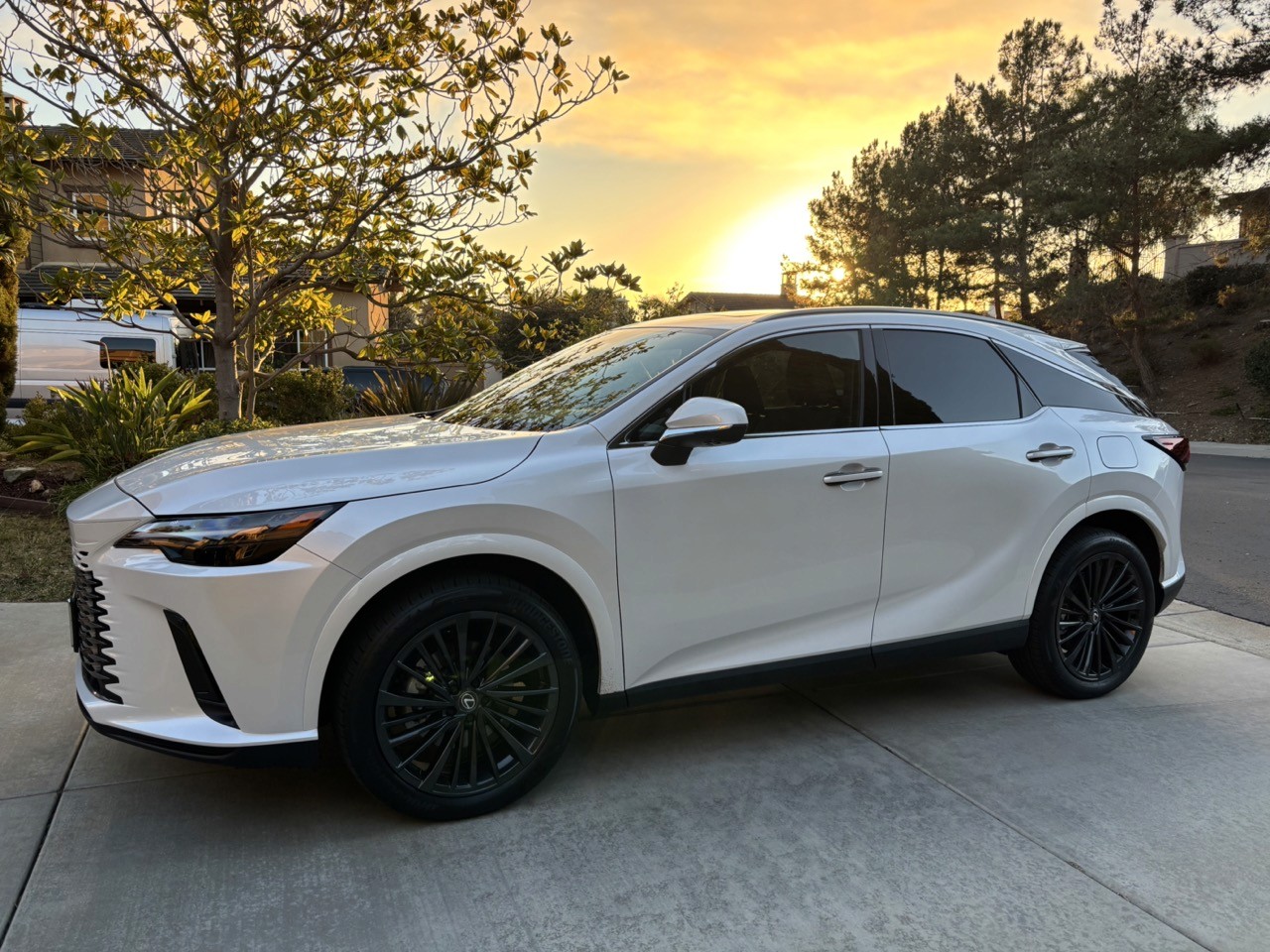
Navigating the Terrain: Insights on General Motors' 3.6 V6 Engine
Written By
CarOracle Experts
Published
May 27, 2023

Pete’s Garage. (2019, August 23). Why GM 3.0 and 3.6 V6 Timing Chains Fail [Video]. YouTube. https://www.youtube.com/watch?v=7YaZLY91HD0
Gain insights on General Motors' 3.6 V6 engine, covering timing chain wear, oil consumption, and performance tips. Navigate the terrain with confidence.
At a Glance
Timing chain wear poses potential risks in GM's 3.6 V6 engine.
Reports of excessive oil consumption and coolant leaks are noteworthy.
Awareness of these potential issues can facilitate informed decision-making when purchasing used GM vehicles.
Introduction
General Motors (GM), a well-established automaker, offers a range of engines across their portfolio. However, it's prudent for consumers to note that not all GM engines perform equally. A case in point is the 3.6 V6 engine, which has been flagged for certain concerns.
Potential Issues with the 3.6 V6 Engine
GM's 3.6 V6 engine, widely utilized across various models, has drawn attention due to some potential issues. Here's what you should know:
1. Timing Chain Wear:
Unlike older vehicles that required routine timing chain replacement, modern cars, under normal circumstances, are designed such that the timing chain lasts the lifetime of the engine. However, the 3.6 V6 engine often experiences premature timing chain wear. This is concerning as the timing chain orchestrates the harmonious operation of the engine's vital components - the pistons and valves. Inadequate attention to a worn timing chain can lead to severe engine damage.
2. Oil Consumption:
Excessive oil consumption is another challenge reported by some 3.6 V6 owners. To avoid the severe consequences of running the engine low on oil, it's important to regularly monitor the oil level.
3. Coolant Leaks:
Coolant leaks are another point of concern, often originating from faulty water pumps within these engines.
Which Models are Affected
The 3.6 V6 engine is housed in several GM models, including, but not limited to:
Chevrolet Traverse
Buick Enclave
GMC Acadia
Cadillac ATS
Chevrolet Camaro
Conclusion
While it's vital to note that these issues don't plague every 3.6 V6 engine, being cognizant of these potential problems can make a significant difference when shopping for used GM vehicles. Always verify the vehicle's maintenance history, consult with a trusted mechanic, and consider a pre-purchase inspection for added confidence. Being forewarned equips you to forestall unwelcome surprises in your car ownership journey.
ON THIS PAGE
Vehicle Valuation & Pricing FAQs
How can I determine if a used car is priced fairly?
To determine whether a used car is priced fairly, start by using vehicle valuation tools like Kelley Blue Book, Edmunds, or Black Book to find the average price range for the specific make, model, year, mileage, and condition of the car you're interested in. Compare the dealer's price with these figures. Next, examine the vehicle's history report for any factors that could affect its value, such as an accident history or extensive repairs. Consider the car's maintenance and service records, if available. Regular maintenance and timely repairs can enhance a vehicle's value. However, always have a trusted mechanic inspect the vehicle to uncover any potential issues that might not be visible or disclosed.
How can I determine if a used car is priced fairly?
To determine whether a used car is priced fairly, start by using vehicle valuation tools like Kelley Blue Book, Edmunds, or Black Book to find the average price range for the specific make, model, year, mileage, and condition of the car you're interested in. Compare the dealer's price with these figures. Next, examine the vehicle's history report for any factors that could affect its value, such as an accident history or extensive repairs. Consider the car's maintenance and service records, if available. Regular maintenance and timely repairs can enhance a vehicle's value. However, always have a trusted mechanic inspect the vehicle to uncover any potential issues that might not be visible or disclosed.
How can I determine if a used car is priced fairly?
To determine whether a used car is priced fairly, start by using vehicle valuation tools like Kelley Blue Book, Edmunds, or Black Book to find the average price range for the specific make, model, year, mileage, and condition of the car you're interested in. Compare the dealer's price with these figures. Next, examine the vehicle's history report for any factors that could affect its value, such as an accident history or extensive repairs. Consider the car's maintenance and service records, if available. Regular maintenance and timely repairs can enhance a vehicle's value. However, always have a trusted mechanic inspect the vehicle to uncover any potential issues that might not be visible or disclosed.
What is Manheim's MMR and how does it feed into Kelley Blue Book, Black Book, and others?
Manheim Market Report (MMR) is a pricing tool used by dealers that provides data on wholesale used vehicle prices, and it's largely based on Manheim auction transactions. These figures are an important input for other vehicle valuation services like Kelley Blue Book and Black Book. The MMR provides a snapshot of what similar vehicles are selling for at wholesale auctions, helping these services understand current market trends and adjust their pricing models accordingly.
For a more in-depth review, please read the article What are Kelley Blue Book Values?
What is Manheim's MMR and how does it feed into Kelley Blue Book, Black Book, and others?
Manheim Market Report (MMR) is a pricing tool used by dealers that provides data on wholesale used vehicle prices, and it's largely based on Manheim auction transactions. These figures are an important input for other vehicle valuation services like Kelley Blue Book and Black Book. The MMR provides a snapshot of what similar vehicles are selling for at wholesale auctions, helping these services understand current market trends and adjust their pricing models accordingly.
For a more in-depth review, please read the article What are Kelley Blue Book Values?
What is Manheim's MMR and how does it feed into Kelley Blue Book, Black Book, and others?
Manheim Market Report (MMR) is a pricing tool used by dealers that provides data on wholesale used vehicle prices, and it's largely based on Manheim auction transactions. These figures are an important input for other vehicle valuation services like Kelley Blue Book and Black Book. The MMR provides a snapshot of what similar vehicles are selling for at wholesale auctions, helping these services understand current market trends and adjust their pricing models accordingly.
For a more in-depth review, please read the article What are Kelley Blue Book Values?
What is Kelley Blue Book's Fair Purchase Price and what is it based on?
Kelley Blue Book's Fair Purchase Price is an indicator of what other buyers in your area have been paying for a similar vehicle. It's derived from millions of real-world transactions and adjusted regularly as market conditions change. This includes both dealership and private party sales. Keep in mind that the Fair Purchase Price is a range, not a single number, and your actual price may vary depending on factors like color, options, dealer incentives, and local demand.
For a more in-depth review, please read the article What are Kelley Blue Book Values?
What is Kelley Blue Book's Fair Purchase Price and what is it based on?
Kelley Blue Book's Fair Purchase Price is an indicator of what other buyers in your area have been paying for a similar vehicle. It's derived from millions of real-world transactions and adjusted regularly as market conditions change. This includes both dealership and private party sales. Keep in mind that the Fair Purchase Price is a range, not a single number, and your actual price may vary depending on factors like color, options, dealer incentives, and local demand.
For a more in-depth review, please read the article What are Kelley Blue Book Values?
What is Kelley Blue Book's Fair Purchase Price and what is it based on?
Kelley Blue Book's Fair Purchase Price is an indicator of what other buyers in your area have been paying for a similar vehicle. It's derived from millions of real-world transactions and adjusted regularly as market conditions change. This includes both dealership and private party sales. Keep in mind that the Fair Purchase Price is a range, not a single number, and your actual price may vary depending on factors like color, options, dealer incentives, and local demand.
For a more in-depth review, please read the article What are Kelley Blue Book Values?
How do dealers price their used cars?
Dealers price their used cars based on various factors. These include the car's condition, mileage, the demand in the local market, and the wholesale price they paid for it, influenced by vehicle auction data. Dealers also factor in their reconditioning costs, marketing expenses, overheads, and a target profit margin. They also consider their inventory turnover. If a vehicle has been sitting for more than 30 days, they're more likely to lower the selling price. Dealers often use tools like vAuto, a sister company of Kelley Blue Book and AutoTrader, to understand vehicle pricing in their market. vAuto leverages used car vehicle listings to assess the market, which reflect retail prices, or prices being offered to and paid by consumers.
How do dealers price their used cars?
Dealers price their used cars based on various factors. These include the car's condition, mileage, the demand in the local market, and the wholesale price they paid for it, influenced by vehicle auction data. Dealers also factor in their reconditioning costs, marketing expenses, overheads, and a target profit margin. They also consider their inventory turnover. If a vehicle has been sitting for more than 30 days, they're more likely to lower the selling price. Dealers often use tools like vAuto, a sister company of Kelley Blue Book and AutoTrader, to understand vehicle pricing in their market. vAuto leverages used car vehicle listings to assess the market, which reflect retail prices, or prices being offered to and paid by consumers.
How do dealers price their used cars?
Dealers price their used cars based on various factors. These include the car's condition, mileage, the demand in the local market, and the wholesale price they paid for it, influenced by vehicle auction data. Dealers also factor in their reconditioning costs, marketing expenses, overheads, and a target profit margin. They also consider their inventory turnover. If a vehicle has been sitting for more than 30 days, they're more likely to lower the selling price. Dealers often use tools like vAuto, a sister company of Kelley Blue Book and AutoTrader, to understand vehicle pricing in their market. vAuto leverages used car vehicle listings to assess the market, which reflect retail prices, or prices being offered to and paid by consumers.
How should I compare prices from competing dealers on a new car?
When comparing prices from competing dealers on a new car, it's crucial to compare the "out-the-door" prices. The out-the-door price is the total cost of the car, including taxes, registration fees, and any dealer-installed options or accessories. This ensures you're comparing "like to like", considering the same year, make, model, trim level, features, and overall cost, rather than just the sticker price. Keep in mind that the lowest sticker price may not always be the best overall deal when you factor in all these variables. Always consider the full terms of the deal, including any incentives, rebates, warranties, and post-sale services.
How should I compare prices from competing dealers on a new car?
When comparing prices from competing dealers on a new car, it's crucial to compare the "out-the-door" prices. The out-the-door price is the total cost of the car, including taxes, registration fees, and any dealer-installed options or accessories. This ensures you're comparing "like to like", considering the same year, make, model, trim level, features, and overall cost, rather than just the sticker price. Keep in mind that the lowest sticker price may not always be the best overall deal when you factor in all these variables. Always consider the full terms of the deal, including any incentives, rebates, warranties, and post-sale services.
How should I compare prices from competing dealers on a new car?
When comparing prices from competing dealers on a new car, it's crucial to compare the "out-the-door" prices. The out-the-door price is the total cost of the car, including taxes, registration fees, and any dealer-installed options or accessories. This ensures you're comparing "like to like", considering the same year, make, model, trim level, features, and overall cost, rather than just the sticker price. Keep in mind that the lowest sticker price may not always be the best overall deal when you factor in all these variables. Always consider the full terms of the deal, including any incentives, rebates, warranties, and post-sale services.
Why are some vehicle dealers non-negotiable like CarMax and others are negotiable?
Different car dealerships have different sales models. Dealers like CarMax use a no-haggle pricing model, which means the price you see is the price you get. This model can reduce stress for buyers who dislike negotiation. It also offers transparency in pricing.
Why are some vehicle dealers non-negotiable like CarMax and others are negotiable?
Different car dealerships have different sales models. Dealers like CarMax use a no-haggle pricing model, which means the price you see is the price you get. This model can reduce stress for buyers who dislike negotiation. It also offers transparency in pricing.
Why are some vehicle dealers non-negotiable like CarMax and others are negotiable?
Different car dealerships have different sales models. Dealers like CarMax use a no-haggle pricing model, which means the price you see is the price you get. This model can reduce stress for buyers who dislike negotiation. It also offers transparency in pricing.
What are the pros and cons of leasing a car versus buying a car?
Leasing allows you to drive a new car every few years with potentially lower monthly payments and less up-front costs. It's a good option if you like having the latest models and don't mind always having a car payment.
Buying, on the other hand, might be more expensive initially, but you have the freedom to modify the car, sell it, or drive it for many years, potentially saving money in the long term. However, you'll be responsible for maintenance after the warranty expires. This decision depends on your financial situation, how much you drive, and whether you view a car as an asset or a tool.
What are the pros and cons of leasing a car versus buying a car?
Leasing allows you to drive a new car every few years with potentially lower monthly payments and less up-front costs. It's a good option if you like having the latest models and don't mind always having a car payment.
Buying, on the other hand, might be more expensive initially, but you have the freedom to modify the car, sell it, or drive it for many years, potentially saving money in the long term. However, you'll be responsible for maintenance after the warranty expires. This decision depends on your financial situation, how much you drive, and whether you view a car as an asset or a tool.
What are the pros and cons of leasing a car versus buying a car?
Leasing allows you to drive a new car every few years with potentially lower monthly payments and less up-front costs. It's a good option if you like having the latest models and don't mind always having a car payment.
Buying, on the other hand, might be more expensive initially, but you have the freedom to modify the car, sell it, or drive it for many years, potentially saving money in the long term. However, you'll be responsible for maintenance after the warranty expires. This decision depends on your financial situation, how much you drive, and whether you view a car as an asset or a tool.
What is the difference between getting pre-approved and pre-qualified for a vehicle loan?
Pre-qualification is often the first step in the auto loan process. It gives you a rough estimate of how much you might be able to borrow based on basic financial information that you provide. It doesn’t guarantee you'll get the loan, as it's a preliminary assessment.
Pre-approval, on the other hand, is a more in-depth process. The lender will check your credit history and other financial information in greater detail to offer you a specific loan amount and interest rate. This step can provide you with a stronger negotiation position when you are at the dealership because you have a firm understanding of how much you can borrow.
What is the difference between getting pre-approved and pre-qualified for a vehicle loan?
Pre-qualification is often the first step in the auto loan process. It gives you a rough estimate of how much you might be able to borrow based on basic financial information that you provide. It doesn’t guarantee you'll get the loan, as it's a preliminary assessment.
Pre-approval, on the other hand, is a more in-depth process. The lender will check your credit history and other financial information in greater detail to offer you a specific loan amount and interest rate. This step can provide you with a stronger negotiation position when you are at the dealership because you have a firm understanding of how much you can borrow.
What is the difference between getting pre-approved and pre-qualified for a vehicle loan?
Pre-qualification is often the first step in the auto loan process. It gives you a rough estimate of how much you might be able to borrow based on basic financial information that you provide. It doesn’t guarantee you'll get the loan, as it's a preliminary assessment.
Pre-approval, on the other hand, is a more in-depth process. The lender will check your credit history and other financial information in greater detail to offer you a specific loan amount and interest rate. This step can provide you with a stronger negotiation position when you are at the dealership because you have a firm understanding of how much you can borrow.
Should I buy new or used?
The decision between new and used cars depends on various factors including your budget, needs, and preferences. A new car is just that - new. This means that everything from the tires to the brakes and engine has not been used, which can provide peace of mind about its condition. Additionally, new cars come with the latest features and are typically covered by a comprehensive manufacturer warranty.
Financing rates for new cars can also be more attractive, especially when manufacturers are offering incentives. These incentives can lower the interest rate, sometimes to below what you'd get for a used car loan.
However, new cars can be significantly more expensive upfront and depreciate quickly. Once you drive the car off the lot, its value can drop substantially.
On the other hand, used cars are generally more affordable upfront and they suffer less depreciation. For the price of a new car, you might be able to get a used luxury or high-performance car. But, a used car can come with maintenance issues from previous ownership, and you'll likely face higher interest rates when financing. A certified pre-owned program can help provide some assurance about the condition of the car, but it's not the same as having a brand-new vehicle.
In the end, the decision between new and used cars depends on your personal preferences, financial situation, and risk tolerance.
Should I buy new or used?
The decision between new and used cars depends on various factors including your budget, needs, and preferences. A new car is just that - new. This means that everything from the tires to the brakes and engine has not been used, which can provide peace of mind about its condition. Additionally, new cars come with the latest features and are typically covered by a comprehensive manufacturer warranty.
Financing rates for new cars can also be more attractive, especially when manufacturers are offering incentives. These incentives can lower the interest rate, sometimes to below what you'd get for a used car loan.
However, new cars can be significantly more expensive upfront and depreciate quickly. Once you drive the car off the lot, its value can drop substantially.
On the other hand, used cars are generally more affordable upfront and they suffer less depreciation. For the price of a new car, you might be able to get a used luxury or high-performance car. But, a used car can come with maintenance issues from previous ownership, and you'll likely face higher interest rates when financing. A certified pre-owned program can help provide some assurance about the condition of the car, but it's not the same as having a brand-new vehicle.
In the end, the decision between new and used cars depends on your personal preferences, financial situation, and risk tolerance.
Should I buy new or used?
The decision between new and used cars depends on various factors including your budget, needs, and preferences. A new car is just that - new. This means that everything from the tires to the brakes and engine has not been used, which can provide peace of mind about its condition. Additionally, new cars come with the latest features and are typically covered by a comprehensive manufacturer warranty.
Financing rates for new cars can also be more attractive, especially when manufacturers are offering incentives. These incentives can lower the interest rate, sometimes to below what you'd get for a used car loan.
However, new cars can be significantly more expensive upfront and depreciate quickly. Once you drive the car off the lot, its value can drop substantially.
On the other hand, used cars are generally more affordable upfront and they suffer less depreciation. For the price of a new car, you might be able to get a used luxury or high-performance car. But, a used car can come with maintenance issues from previous ownership, and you'll likely face higher interest rates when financing. A certified pre-owned program can help provide some assurance about the condition of the car, but it's not the same as having a brand-new vehicle.
In the end, the decision between new and used cars depends on your personal preferences, financial situation, and risk tolerance.
Dive Even Deeper into Vehicle Valuation & Pricing
Dive Even Deeper into Vehicle Valuation & Pricing
Dive Even Deeper into Vehicle Valuation & Pricing
Latest Insights
Latest Insights
Latest Insights
CarOracle® is a California Licensed Auto Buying Service and dealer (License No. 43082). All new vehicles arranged for sale are subject to price and availability from the selling franchised new car dealer.
Schedule a Consultation
Our Service Areas
Get in touch
© 2026 CarOracle LLC. All rights reserved. CarOracle® is a registered trademark of CarOracle LLC.
CarOracle® is a California Licensed Auto Buying Service and dealer (License No. 43082). All new vehicles arranged for sale are subject to price and availability from the selling franchised new car dealer.
Schedule a Consultation
Our Service Areas
Get in touch
© 2026 CarOracle LLC. All rights reserved. CarOracle® is a registered trademark of CarOracle LLC.
CarOracle® is a California Licensed Auto Buying Service and dealer (License No. 43082). All new vehicles arranged for sale are subject to price and availability from the selling franchised new car dealer.
Schedule a Consultation
Our Service Areas
Get in touch
© 2026 CarOracle LLC. All rights reserved. CarOracle® is a registered trademark of CarOracle LLC.














